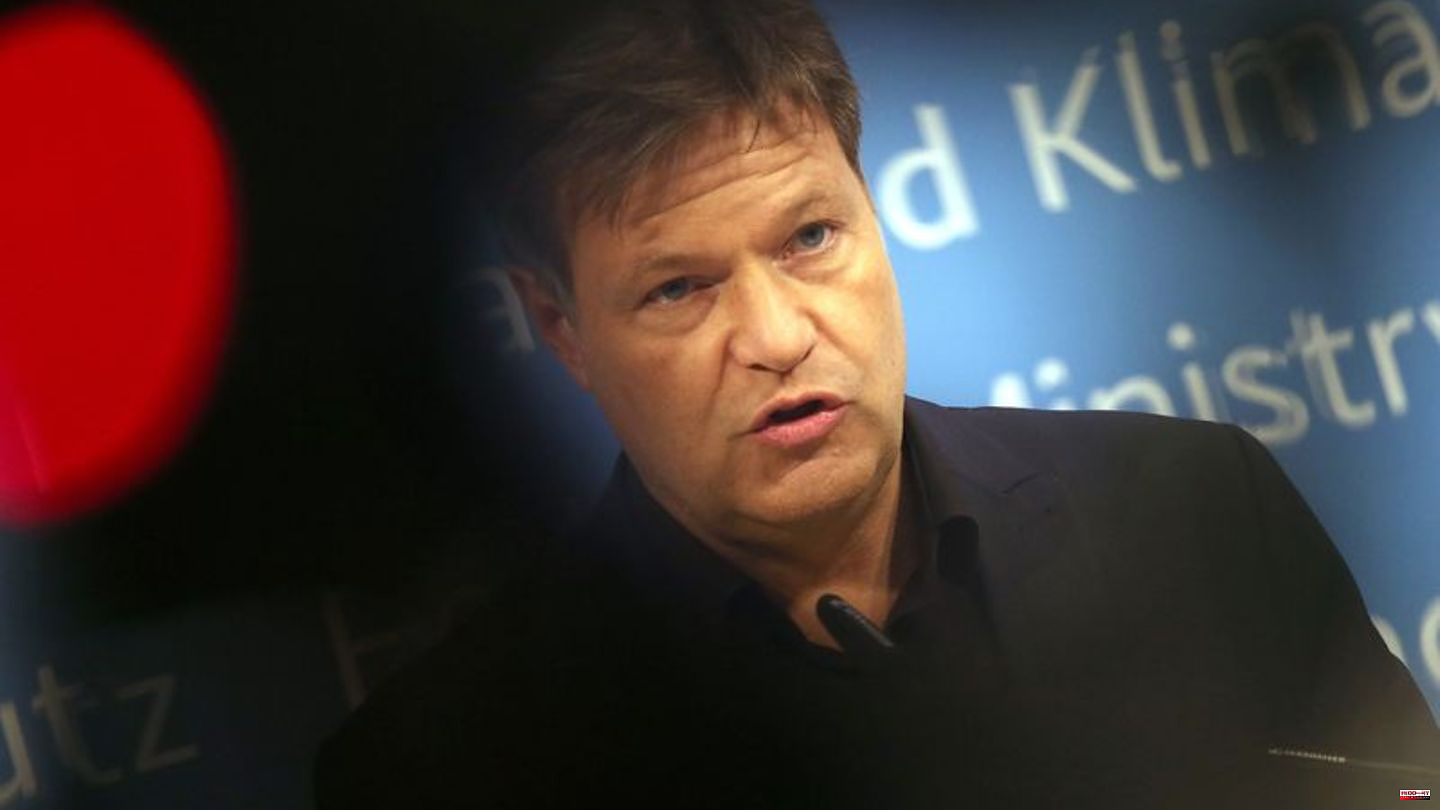The FDP wants to prevent a possible ban on new gas and oil heating systems from 2024. "The FDP parliamentary group does not have a draft for a ban on oil and gas heating. It will not come to that either," said the FDP parliamentary group leader in the Bundestag, Christian Dürr, the "Tagesspiegel". He fears that the ban will further increase construction and rental costs. "I think blanket bans are wrong - instead we should remain open to technology and ensure that classic heating systems can also be operated in a climate-neutral manner in the future," said Dürr.
The construction and housing policy spokesman for the FDP parliamentary group, Daniel Föst, made a similar statement. He told the "Augsburger Allgemeine" (Wednesday) that "a general ban on gas heating will hit many people hard and overwhelm them financially". In addition, it is unnecessary, because the gas infrastructure can also be used in a climate-neutral manner in the future - for example via hybrid heating and the use of hydrogen. "Slowing down these innovations would be the wrong approach."
More robust without gas and oil
The construction and housing policy spokeswoman for the Greens, Christina-Johanne Schröder, defended the plans. "Every expanded gas or oil heating system, every energetic improvement makes us freer and our buildings more robust," she told the "Tagesspiegel". In addition, the installation ban had already been agreed, Schröder emphasized, referring to a decision by the coalition leaders in March 2022. "We are shaping the heat transition in a social manner," said Schröder.
On Tuesday, the "Bild" newspaper reported on a draft ban on the installation of new gas and oil heating systems from 2024. They would be replaced by heating systems that are operated with at least 65 percent renewable energies. The economics and building ministries are working on a corresponding law. Details are still open.
In the coalition agreement, the SPD, Greens and FDP agreed that from 2025 every newly installed heating system should be operated with 65 percent renewable energy. In March 2022, the coalition leaders then agreed that "if possible" from January 1, 2024, every new built-in heating system should be operated in this way.
Subsidies are intended to speed things up
The exchange of heating is subsidized by the state. Economics Minister Robert Habeck (Greens) is aiming for such a high subsidy that people with a small budget are not prevented from renovating a house, installing a heat pump or removing gas burners. The SPD parliamentary group insists on taking hardship cases into account. In the building sector, Germany lags far behind the climate targets.
Green leader Ricarda Lang told the news portal "t-online" that "the heating changeover must be socially flanked". In order for this to succeed, generous funding is needed. The common goal of the traffic light is clear: "We want to get out of the dependence on fossil energies and towards renewables, also in the building sector," said Lang. "Of course, existing heating systems should continue to be operated and repaired." But if the old heating system gives up the ghost and has to be replaced, it is only logical to rely on climate-friendly technologies.
Modernization as a central lever
FDP parliamentary group deputy Lukas Köhler criticized that the previous draft fell far short of the agreements made in the coalition agreement and required a fundamental revision. The coalition partners have agreed on the goal that every new heating system will be operated with 65 percent renewables in the future, he told the newspapers of the Funke media group. "However, we deliberately avoided making political technology decisions," he said.
From the point of view of the skilled trades, the modernization of building technology is a key lever for achieving climate goals. "However, what should count above all is that target values for CO2 reduction on a building and district scale are achieved," said Holger Schwannecke, Secretary General of the ZDH trade association. "On the other hand, committing to certain technologies makes little sense." In the medium term, there will continue to be buildings that are not suitable for a quick switch from combustion heating systems to new technologies.
call for skilled workers
According to the ZDH, the heat pump is currently one of the best technologies in the single building sector. The craft is just increasing its capacities here. Providing incentives for the installation of heat pumps in new buildings and for the rapid replacement of existing heating systems certainly makes sense. "However, before certain technologies are banned from existing buildings, it would be better to continue to promote the energetic renovation of the building fabric and make individual solutions possible for each house," demanded Schwannecke.
The general manager of the German Association of Towns and Municipalities, Gerd Landsberg, said "Bild" about the plans: "The implementation is unrealistic." He complained that there were far too few skilled workers to expand the millions of boilers within a few years or to install systems such as heat pumps. In addition, the necessary infrastructure such as efficient power distribution networks is missing. Ingbert Liebing, managing director of the Association of Municipal Enterprises (VKU), also considers Habeck's plans to be "not feasible". The planned rules completely ignored reality.







